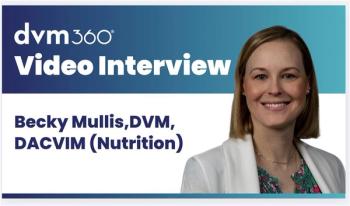
How is the CDC Responding to a Rise in Zoonotic Disease?
As the enteric zoonoses activity lead at the CDC, Megin Nichols, DVM, MPH, DACVPM, is tasked with responding to the increase of zoonotic diseases in the United States, particularly Salmonella and E. Coli.
"My work at CDC focuses on an area called enteric zoonoses. So, these are some germs—like Salmonella and E. Coli—that impact our intestinal flora and can make us sick with vomiting and diarrhea. These bacteria can be carried in the gut of healthy animals that carry the bug, but that really don't get sick from it. So, when people interact with animals, like backyard chickens or livestock, sometimes we might not wash our hands appropriately and illness can result.
So, my work at CDC focuses on the prevention of the illnesses that go between people and animals, such as Salmonella and E. Coli. This year, we have had many illness that have been associated with backyard poultry. Unfortunately, this is a recurring trend and last year in 2017, we saw the highest number of illnesses that we have ever seen at CDC. And one of the reasons we think this is because it's an emerging trend—many people are becoming more interested in where their food comes from, and wanting to participate in agriculture in their backyard.
And what they might not realize is that poultry can carry germs, like Salmonella, that can make us sick. So they bring these poultry home and they might not practice all the best husbandry. So, we think it's really, really important for public health professionals, veterinarians, and physicians to all work together, to educate new poultry owners about the risks and how to keep themselves, their birds, and their families healthy. And that can be done through very ,very simple steps, such as hand-washing, not bringing your poultry into your house, but keeping them in their own coop outdoors, making sure that you have a dedicated pair of shoes that you wear when you're cleaning the coop, and not wearing those and tracking those germs inside. And then working closely with animal health professionals so that when your poultry do need medical care, you have a veterinarian you can contact and work with."
Newsletter
From exam room tips to practice management insights, get trusted veterinary news delivered straight to your inbox—subscribe to dvm360.





